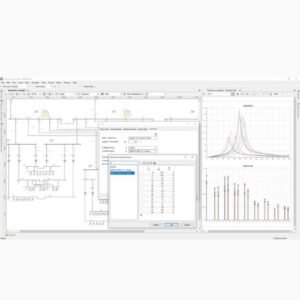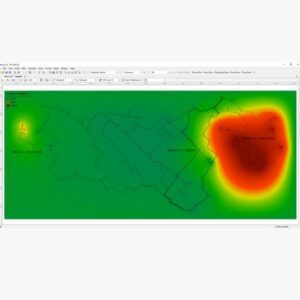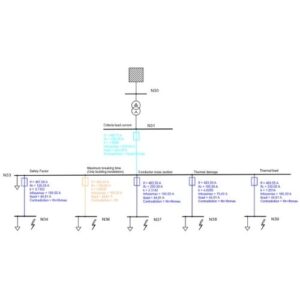Load Balancing (LB) Siemens PSS SINCAL Optimization and Planning Modules
Description
Load Balancing (LB) Siemens PSS SINCAL Optimization and Planning Modules
Load Balancing (LB)
The module Load Balancing (LB) in PSS SINCAL can be used in unbalanced networks to optimize the connection of single- and two-phase connected loads with the objective to achieve a balanced system loading. Complete feeders can be re-linked as a whole.
Load balancing is a combinatorial problem which is solved by using a genetic optimization algorithm that varies the combinations of the connected phases of single phase (L1-G, L2-G, L3-G) and two-phase (L1-L2, L2-L3, L3-L1) connected loads.
The result of the optimization is the system configuration that results in the lowest system unbalance factor of all analyzed combinations.
The result dialog lists the existing and newly proposed phase connections for loads where changes in phase connection would achieve a more balanced load flow in the network. The result can be reviewed in the result dialog window where changes of the connected phases can be applied to the network for selected loads.
Optimization and Planning Modules
PSS SINCAL Optimization and Planning Modules
Optimize the flow and the quality of power in your network and determine the best possible structure including Optimal Branching, Compensation Optimization, Volt/Var Optimization and more.
PSS SINCAL supports your entire engineering workflow
For over 20 years, PSS SINCAL has enabled engineers to tackle different challenges of the changing distribution, transmission, and industrial power systems, including maintaining high reliability of supply and efficiently integrating Distributed Energy Resources. With the modular platform of PSS SINCAL, power system planning and operation engineers are supported with their entire workflow from the initial data import and network modeling (considering past, current and future conditions), to basic and extended calculations, all the way to extensive protection simulations and analysis as well as other methods in time and frequency domains.








Reviews
There are no reviews yet.